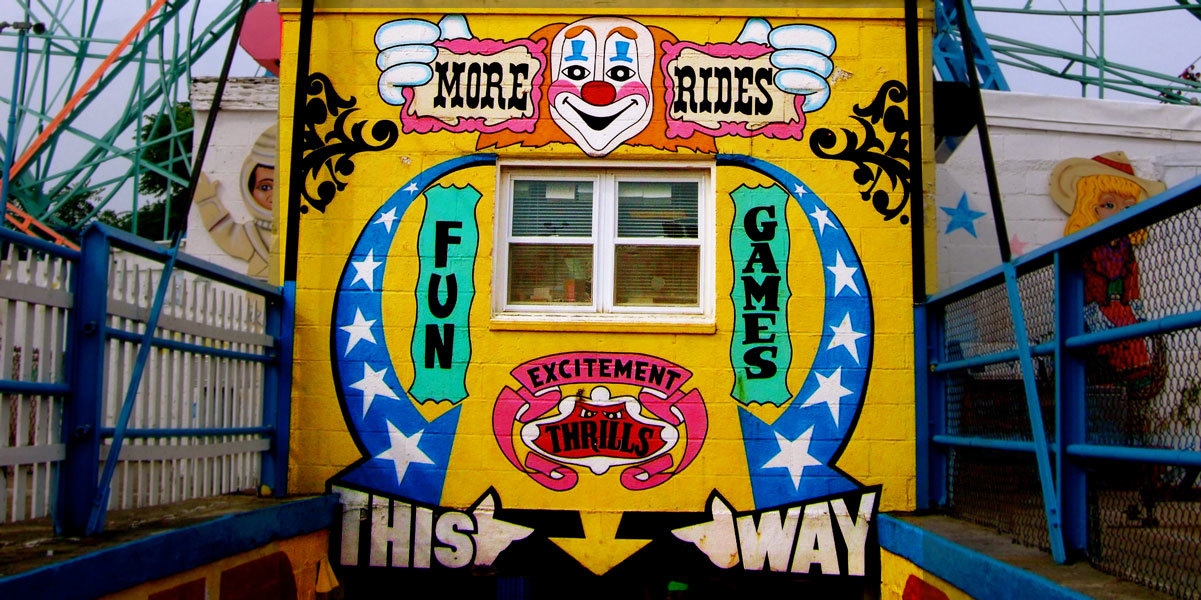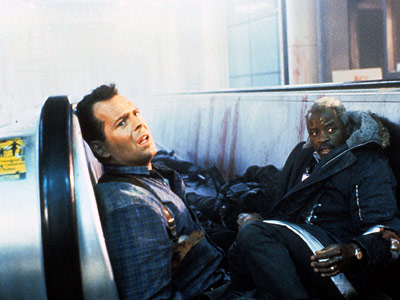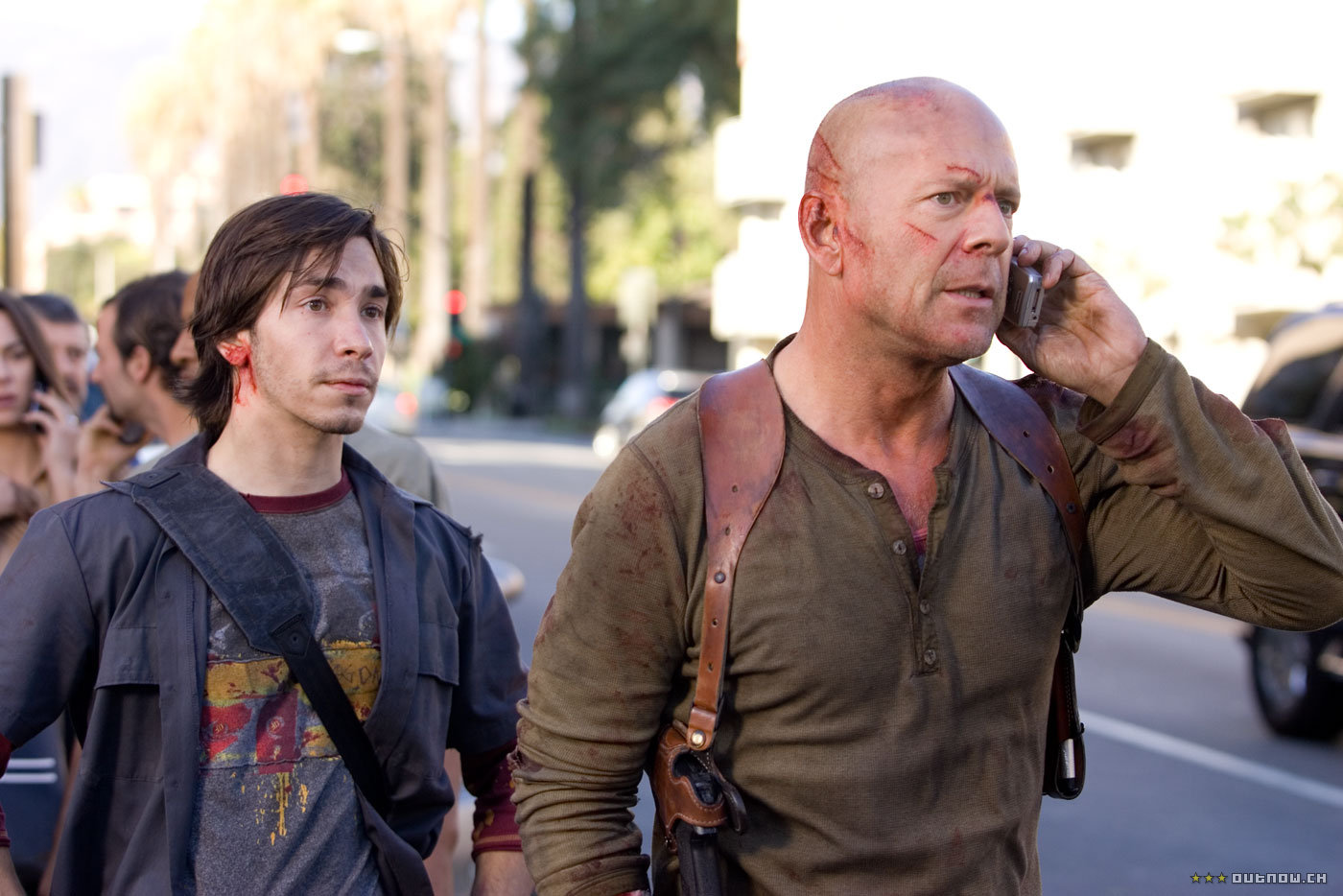Deleted Scenes: Edward Norton on "Motherless Brooklyn" and the Ghosts of New York
Chris Klimek
Cinematographer Dick Pope and director/star Edward Norton shooting Motherless Brooklyn in 2018. (Glen Wilson/Warner Bros.)
Here are some outtakes from the interview Edward Norton I had on Smithsonian this week, where we talked about his long-gestating adaptation of Jonathan Lethem’s 1999 novel, Motherless Brooklyn , out this week. The book is set in the present of when it was published, but Norton has, with Lethem’s blessing, set his version of it in 1957 in an attempt to make something like New York City’s answer to Chinatown. Anyway, I was sorry to see these exchanges go, so I clipped ‘em out and saved ‘em.
I was trying to remember if there are any signposts in the book that mark it as taking place in the present, or in the present of when it was published 20 years ago. I don’t think there are any until we get to the passage where Lionel is talking about how much he loves Prince, and he hears in extended remixes of Prince songs a sort of reflection of how his condition makes him play with language in a way he can’t control.
You do a version of that in the movie in a jazz club scene where Michael K. Williams’ character is performing, and Lionel can’t stop himself from trying to contribute verbally to the music.
Yes, that's a very intentional transposition of a part of Jonathan’s book that I loved. The idea of music being a beautiful expression of compulsion. And I thought we could have a lot of fun with jazz and especially Bop, in that era, because if you were ever to say, “What is the Tourretic impulse writ into music?”, it’s Bop. It sounds Tourretic to me, in that it’s impulsive, it’s improvisational, and it loops on itself. It takes things and, just as Lionel says about his brain, it twists them around and reforms them.
Obviously you have to make things cinematic in a film. It has to be visceral, not cerebral.
The cast you’ve assembled for this film—Bruce Willis, Alec Baldwin, Bobby Cannavale, Williem Dafoe—I know many of these are people you’ve worked with before, but they have very particular faces. They look like they could have been movie stars in the 50s.
Yeah. When you watch movies like Citizen Kane or Twelve Angry Men, the people have this heft. Sometimes I think our generation has what I would call an attenuated youth. Past a certain point, there’s a gravitas to actors from that era. I wanted people who have that quality.
And obviously it’s not just masculine, because Cherry Jones and Leslie Mann… Leslie feels to me like Judy Holliday or Barbara Stanwyck. I think you could put her in any 40s screwball comedy, or any gun-moll thing, and she would fit right in. And Cherry Jones just seems like a Bronx nun, like she was in John Shanley’s play Doubt. She feels like exactly like a career socialist, do you know what I mean? She probably belonged in the 30s to an American socialist org, and she’s still fighting the good fight. She’s got that toughness.
And Alec has that Shakespearean actor’s gift for the fluidity and language of language. He can take text and drive through the idea that’s within it, he pulls the thread of a complex idea in an absolutely beautiful way. He said to me when he read [the script], “This is like what Lee J. Cobb would have done.” Lee J. Cobb was Johnny Friendly in On the Waterfront; he was in Twelve Angry Men; he was in the original Death of Salesman. Not a lot of people have that force of lethal intimidationand charm that Alec has.
And he’s your Noah Cross.
Well, John Huston is great, but he’s weird. He feels like an alien to me. Alec has a dangerous seduction in him. Alec has this capacity to make you want to come to the dark side because he makes it sound like it makes so much sense. John Huston in Chinatown, he’s not trying to win anybody over. He’s looking down and saying, “You are a fly, my friend, and if you think you can affect what’s going on, you will be swatted.”
Alec’s character in this is much more like a Jedi Knight who has gone dark, but he’s reaching across to Luke and saying, “What we’re doing here can’t be understood by everybody, but you understand it. Come with us.” That’s a different kind of danger. If you can’t recognize someone in the cloak of the public servant who really hates people, very dangerous things can happen.














